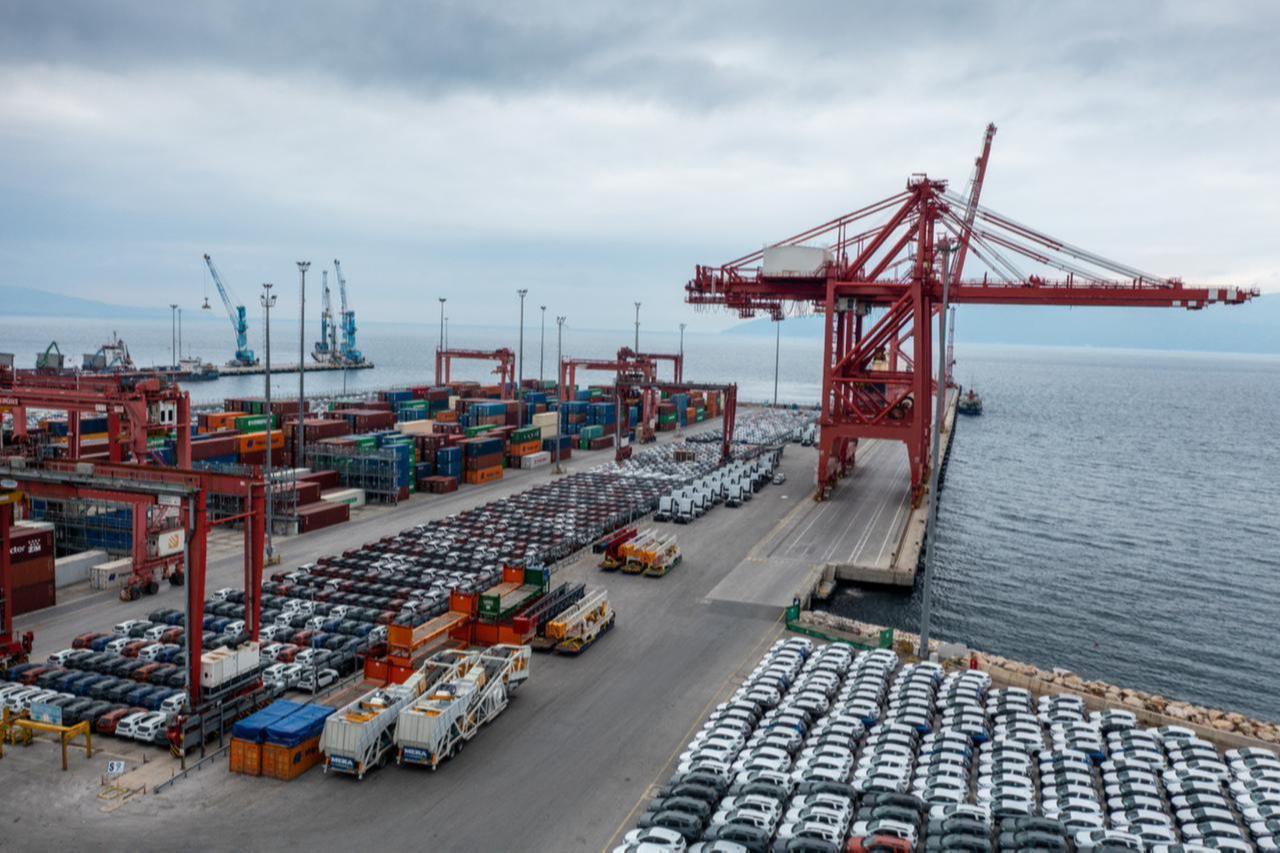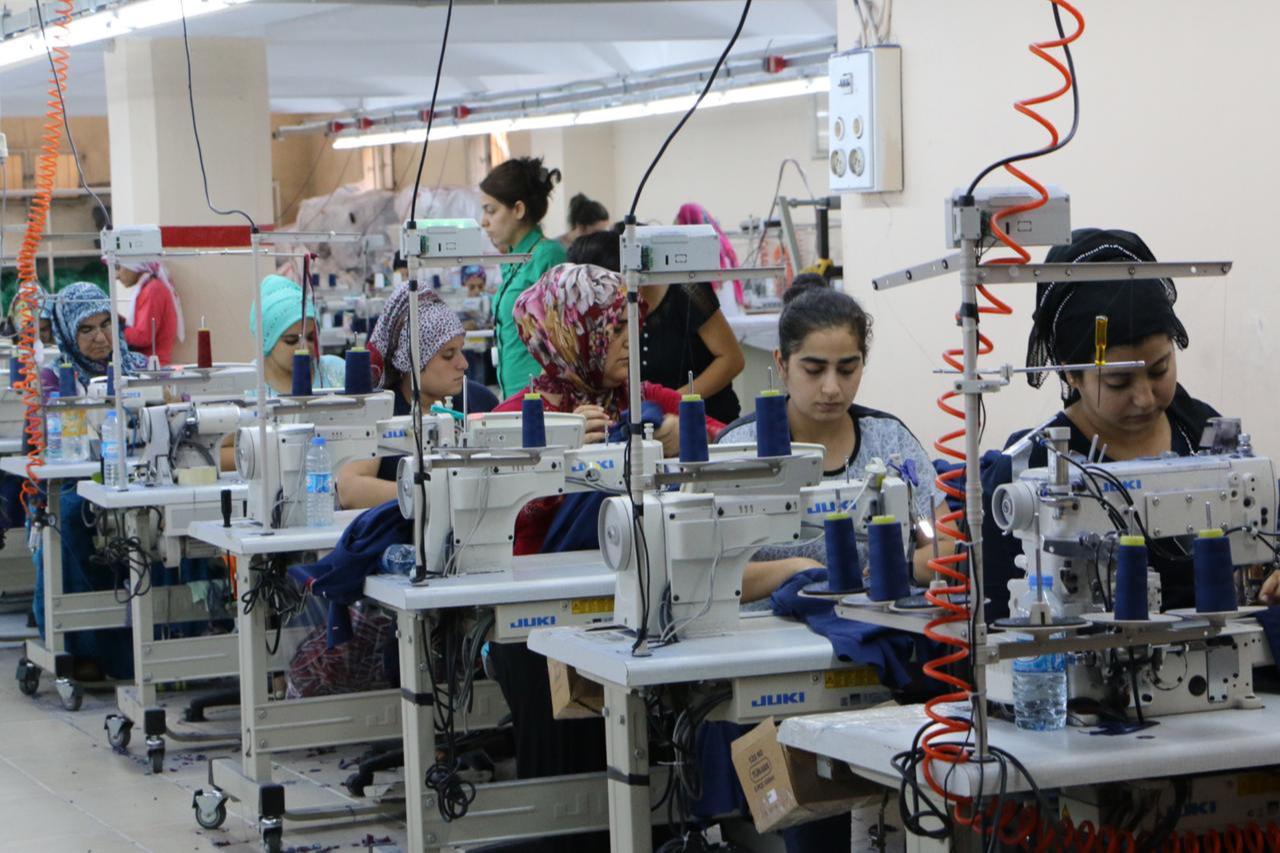
The United States’ decision to cap customs duties on European Union products at 15% while increasing tariffs on Turkish goods has sparked alarm across Türkiye’s export sectors, including textiles, furniture, and the automotive supply industry, according to Turkish media outlet Ekonomim.
Turkish exporters warn that rising tariff burdens, some now reaching 50%, are eroding competitiveness in the U.S. market and pushing key industries toward crisis.
In the textile sector, total tariffs on Turkish goods have risen to 34%. For furniture, the 25% tariff imposed in October will climb to 30% by January 2026. In the automotive supply industry, a 50% additional tariff on steel- and aluminum-containing components is threatening exports.
Sector leaders are calling on Ankara and Washington to urgently establish a new negotiation framework to mitigate market losses.
In April, U.S. President Donald Trump introduced a 20% “reciprocal” tariff on most EU goods, delayed until July, along with additional tariffs on dozens of other countries. Meanwhile, the U.S. and EU are nearing a deal that would impose a 15% cap on tariffs for European goods, The Financial Times reported Wednesday.
According to three sources cited by the paper, the EU is expected to accept a 15% rate to avoid Trump’s planned hike to 30% by Aug. 1. The agreement is modeled after a similar deal finalized with Japan.
The sources said the deal could allow the EU and the U.S. to reduce tariffs on products such as aircraft, spirits, and medical devices. While current tariffs on EU vehicles sit at 27.5%, the deal would lower them to 15%. In exchange, the EU would open its market to U.S. industrial goods and agricultural quotas while committing to major energy and tech purchases.
Two of the sources said the EU is preparing a €93 billion ($109 billion) retaliatory tariff package if the deal fails.

Turkish Exporters Assembly (TIM) President Mustafa Gultepe told Turkish media outlet Ekonomi that the U.S.–EU agreement, signed on Aug. 21, would place Turkish producers at a severe disadvantage.
“Under the agreement, the U.S. accepted applying a maximum 15% tariff on most EU products, including automobiles. In return, the EU abolished tariffs on U.S. industrial products and opened specific quotas for agricultural goods,” Gultepe said. “But high U.S. tariffs—50% on steel, aluminum and copper, were left unchanged.”
Gultepe added that the EU also committed to purchasing $750 billion in U.S. energy and $40 billion in AI chips, along with $600 billion in direct investments in the U.S. economy. He warned that while Türkiye faces a new 15% minimum tariff, the EU has secured a 15% cap across many sectors, giving European producers an enormous advantage.
The most critical impact, he said, will be felt in commercial vehicles and automotive supply industries, where the EU’s preferential access will effectively erase Türkiye’s edge in the U.S. market.
Fixed tariffs on pharmaceuticals and chemicals are also expected to raise global costs for raw materials and medicines.
Ahmet Gulec, president of the Furniture Associations Federation (MOSFED), said the U.S.–EU agreement has caused serious concern within the industry.
“Unfortunately, we have lost our competitive position against EU countries in furniture exports to the U.S.,” Gulec said.
“The U.S. had set Türkiye’s additional tariff at 15% in August. In October, this was raised to 25%, and by January 2026, it will reach 30%. For kitchen products, it may rise to 50%.”
Gulec added that combined with rising costs and exchange-rate pressures, these tariffs could result in Türkiye losing the U.S. market entirely. “The U.S. is vital for our sector,” he said. “Türkiye must accelerate negotiations with Washington.”

Hakan Cinar, president of the Foreign Trade Experts Association (Disyonder), said Türkiye is facing a critical moment in its trade relationship with the U.S.
“After the U.S.–EU agreement, EU products will enter the U.S. with significant tariff advantages, while Türkiye will continue paying 15–35% tariffs on the same goods,” Cinar said. “This creates a serious competitive disadvantage, particularly for textiles and furniture.”
Cinar urged Ankara to immediately establish a bilateral mechanism for trade facilitation and tariff reduction.
Textile exporters also warn that the new tariff structure could shut them out of the U.S. market. Industry representatives note that the existing tariffs, ranging from 9% to 30%, will be compounded by an additional 15%, bringing the total burden to an average of 34%.
Ahmet Oksuz, chair of the Istanbul Textile and Raw Materials Exporters’ Association (ITHIB), said that although Türkiye currently faces fewer penalties than some Asian competitors due to broader U.S. trade sanctions, the impact remains damaging.
“In January–July 2025, U.S. textile imports fell 3% to $17 billion,” Oksuz said. “Imports from China fell 15%, while imports from Türkiye rose slightly, by 0.6%. But countries unable to sell to the U.S. due to high tariffs are now redirecting their exports to the EU—our main market.”
Oksuz said that during the same period, Türkiye’s textile exports to the EU dropped 2.2%, while EU imports from China rose 11.7%, worsening the competitive landscape for Turkish producers.
Data from the TIM shows that Türkiye’s exports to the U.S. fell 10% in October to $1.9 billion. Over the January–October period, exports declined 2.5% to $10.8 billion.
In 2024, Türkiye had reached a bilateral trade volume of $33 billion with the U.S. Sector leaders recall that President Recep Tayyip Erdogan and President Donald Trump had set a $100 billion trade target, which now appears unreachable without tariff relief.
Meanwhile, Türkiye’s overall exports reached $23.9 billion in October, up 2% year-on-year, according to data released Thursday by the Turkish Statistical Institute (TurkStat). Imports rose 7.2% to $31.52 billion, resulting in a trade deficit of $7.58 billion—a 27.6% increase.
Excluding energy and non-monetary gold, Türkiye’s foreign trade deficit stood at $1 billion in October. In terms of sectoral breakdown, manufacturing accounted for 94.4% of exports, agriculture, forestry, and fishing for 3.3%, and mining and quarrying for 1.6%.
High-tech goods made up 3.4% of manufacturing exports, while medium-high-tech products represented 40.9%.
Germany was Türkiye’s top export destination in October, with $2 billion in shipments, followed by the United Kingdom with $1.42 billion and the United States with $1.41 billion.
China led imports into Türkiye with $3.97 billion, followed by Russia at $3.7 billion and Germany at $2.3 billion.
For the January–October period, Türkiye’s exports totaled $224.4 billion, up 3.9% year-on-year, while imports rose 6.1% to $299.1 billion.
The 10-month trade deficit reached $74.68 billion, a 13.3% increase compared to the same period in 2024.